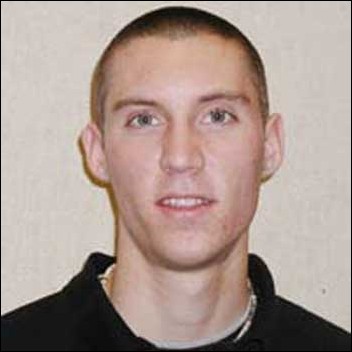NBA’s proposed age rule: Discriminatory or saving grace?

Image: Getting even with L.A. is Kings’ No. 1 priority::
April 23, 2003
NBA rookie Amare Stoudemire was taken ninth in the NBA draft; he is the top contender for Rookie of the Year honors and he will be paid roughly $8 million over the next four seasons.-
Stoudemire, like several other 18-to-19-year-olds with remarkable flair, made the jump to the NBA just after his high school prom, because he came to the realization that college was merely a four-year detour to his cherished destination — the NBA.-
But a new rule in the works by NBA Commissioner David Stern could deny Stoudemire and anyone else under the age of 20 from entering the draft — essentially barring these prodigious youngsters their right to make millions. –
“I don’t think that’s fair,” Golden State guard Jason Richardson said. “I think that if guys have the talent they should be allowed to come play.”-
Every generation makes its own rules and starts its own trends, but Stern isn’t going to stand around and watch his NBA be taken over by guys more familiar with an X-box than a box-and-one zone. He believes the rule, which would be implemented in 2004 if passed, would improve the quality of play and the league’s overall image.-
The rule won’t just eliminate players making the jump from high school, but also anyone leaving college before blowing out their twenty candles, a crowd that includes many of today’s dynamic stars.-
“I stayed in college for two years and I was still 19 when I came out,” Golden State guard Gilbert Arenas said. “It’s going to be hard to tell a player he can’t play, but they complain about young players in the league so they might as well do something about it.”-
Why the rule is unfair –
A quick look around today’s NBA reveals a new generation of superstars. Kobe Bryant, Kevin Garnett and Tracy McGrady all made the jump from high school and all bring positive exposure to the NBA. –
These guys weren’t interested in what the NCAA could offer them — a classroom and limited practice time.
Without the time constraints imposed by the NCAA, those who enter the NBA early are developing their game much faster than they would have in college and are working with the best players and coaches in the world. –
How many of us want to learn how to surf in a wave pool, when the ocean is just a hop away?-
“I think it takes a year to adjust to the NBA game, and I don’t think you can really get that in college,” second-year Golden State forward Troy Murphy said. “It takes a year whether you play one year in college, whether you play four years in college or whether you come out of high school.” –
And why go to college if you have your dream job just a signature away anyway? Many of today’s athletes come from poverty and the money they receive can go a long way for them and their families.
Working for free doesn’t quite add up when the NCAA is cashing in on $6 billion TV deals. Plus, why run the risk of a career-ending injury or becoming a lower pick in the draft?-
Some critics of the rule alledge that it is racial — all of the NBA’s high-schoolers have been African-American athletes.
No one complains when a white, 18-year-old joins the Houston Astros and everyone applauds a 16-year-old pro tennis sensation.
-“Some could say (the rule) would be a racist decision,” said Indiana’s Jermaine O’Neal, who made his NBA debut at age 18. “I think it’s unfair. There are professionals in tennis, golf, baseball and hockey, to name a few, who are 18, some younger.”-
Why the rule is just–
What started as something intriguing has now, like reality television and retro apparel, gone way overboard. –
Prior to the inflation of teens, NCAA stars came to the NBA like new cars needing just a final wax before hitting the road.
Nowadays, players like Tyson Chandler and Eddy Curry are drafted on their potential and use their first couple of years as a maturing process — something they should be doing in college. -There is something to be said for a college education too, since the average NBA player plays roughly four years. Of all the guys who do make it, one thing that you normally don’t hear much about is the guys that don’t make it.-
“You may have one or two guys, every one or two years, that can come in and make a difference,” Golden State forward Antawn Jamison said. “But I do think they need to do something as far as guys not even going to college, being in the NBA two or three years and then not having anything to fall back on.”-
And other than the actual academics, college is a place where players are taught how to live on their own and become grown-ups. –
“In high school my mom took care of me,” Clippers forward Elton Brand said. “College helped me get acclimated as an adult — living by myself, eating by myself.” –
The bottom line-
Prior to 1971, an NBA rule in place stated that a graduating high school player must wait four years before he would become eligible to play in the league. But a 1971 judicial decision forced the NBA to throw out the rule, concluding that it precluded a person’s right to begin earning his living. –
If the new rule were to come into effect, what would stop an agent of an underage player from taking his case in front of a judge? -“I don’t think the league can even pass this,” NBA Hall of Famer Rick Barry said. “Ultimately, someone will take it to court and will probably win.”-
Maybe Major League Baseball got it right with its rule, which allows players to be drafted if they have either graduated from high school and have not yet played college ball, or if they have completed either their junior or senior years in college.
This rule ensures that players, if they decide not to jump straight to the pros, would spend more than a token year or two at a major school. It is good for both the MLB and NCAA.-
Unfortunately, a lot of players aren’t living in a true reality. Either they think they are more ready than they are or they have the wrong people leading them on the wrong path. –
“You have to be realistic with yourself,” Sac State senior Joel Jones said. “You can’t lie to yourself and say you are something that you’re not.”-
It is hypocritical for most of us to agree that teenagers have no place in the NBA. If you were offered millions of dollars to work your dream job straight after graduation, would you hesitate? –
Click here to send private feedback about this articleto the State Hornet’s Sports staff.






















































































































